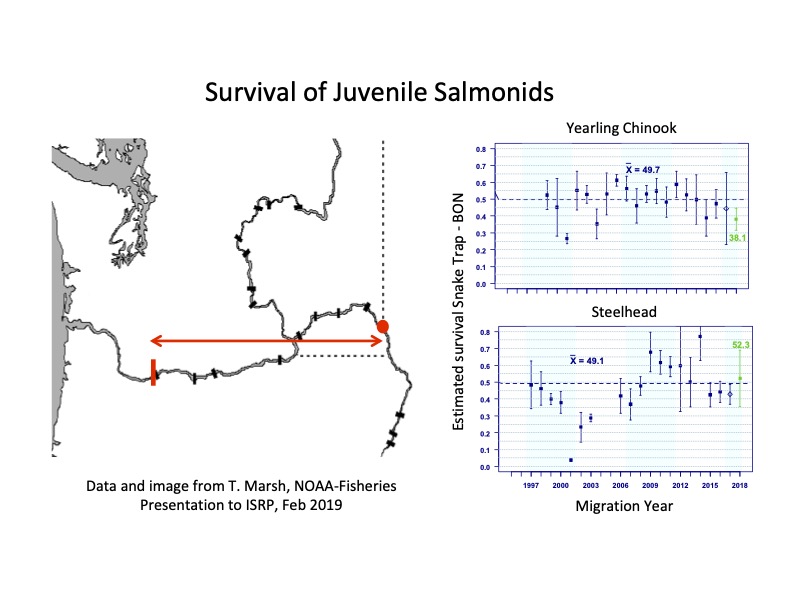forum
library
tutorial
contact

Northwest Energy Security Act
Will Exterminate Salmon
by Linwood Laughy
Idaho Press, April 1, 2025
|
the film forum library tutorial contact |

|
Northwest Energy Security Act
by Linwood Laughy
|
Their bill aims to permanently prohibit
the removal of the lower Snake River dams.
 Idaho Senators Risch, Crapo and Representative Fulcher have introduced legislation that is a death sentence for Idaho's salmon. Their "Northwest Energy Security Act" (S182/HR 626) should more accurately be called the "Idaho Salmon Extermination Act." Their bill aims to permanently prohibit the removal of the lower Snake River dams -- regardless of science, public input, or the devastating consequences for Idaho's economy and environment.
Idaho Senators Risch, Crapo and Representative Fulcher have introduced legislation that is a death sentence for Idaho's salmon. Their "Northwest Energy Security Act" (S182/HR 626) should more accurately be called the "Idaho Salmon Extermination Act." Their bill aims to permanently prohibit the removal of the lower Snake River dams -- regardless of science, public input, or the devastating consequences for Idaho's economy and environment.
For decades, Idaho's wild salmon have been fighting for survival. Once returning to our rivers in the millions, these fish now teeter on the brink of extinction. Hatcheries, fish ladders, and habitat restoration have all proven insufficient. The overwhelming scientific consensus is clear: the four lower Snake River dams must be removed if we want Idaho's wild salmon to survive.
Supporters of the Risch-Crapo-Fulcher bill argue that protecting the lower Snake River dams is essential to our energy supply. However, production at these outdated dams has declined significantly. From 2005-2019, the average annual power production from all four dams totaled 965 average Megawatts (aMW). During the last five years (2020-2024), that same average is just 683 aMW, only 2% of Pacific Northwest power production. Meanwhile, studies show wind, solar, battery storage, and regional energy markets could seamlessly replace the dams’ limited power output while making our energy system more resilient and cost-effective.
Bill proponents also argue water transportation is essential to the region’s economy, but the facts tell a different story. Since the year 2000, freight volume barged on the lower Snake River has declined by over 50%, wheat by 40%. A rail line capable of handling the largest grain cars runs beside the lower Snake River with connections to the Tri-Cities and the Columbia River. This track has multiple times the capacity needed to transport all the grain now barged on the river.
There is a better way forward. The Columbia Basin Restoration Initiative (CBRI) offers a science-based, collaborative plan to recover salmon, modernize our energy system, honor Tribal treaty rights, and support river-dependent communities. This is the future we should be fighting for -- not one where Idaho’s rivers run empty of salmon. Four Tribes, the states of Washington and Oregon, and many thousands of citizens already back the CBRI. Idaho’s elected leaders should as well.
Related Pages:
Flatlining Salmon and Steelhead Numbers in the Columbia Basin are a Success and a Cautionary Tale by Nika Bartoo-Smith, Oregon Public Broadcasting, 8/4/24
learn more on topics covered in the film
see the video
read the script
learn the songs
discussion forum
